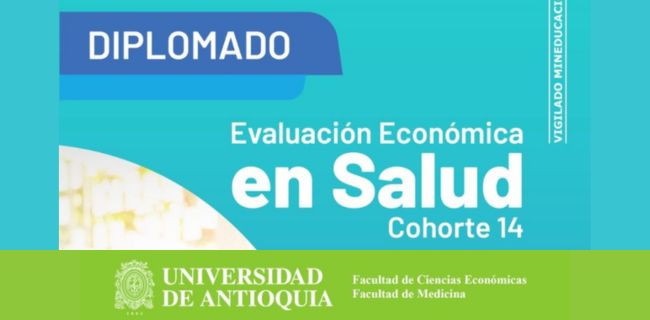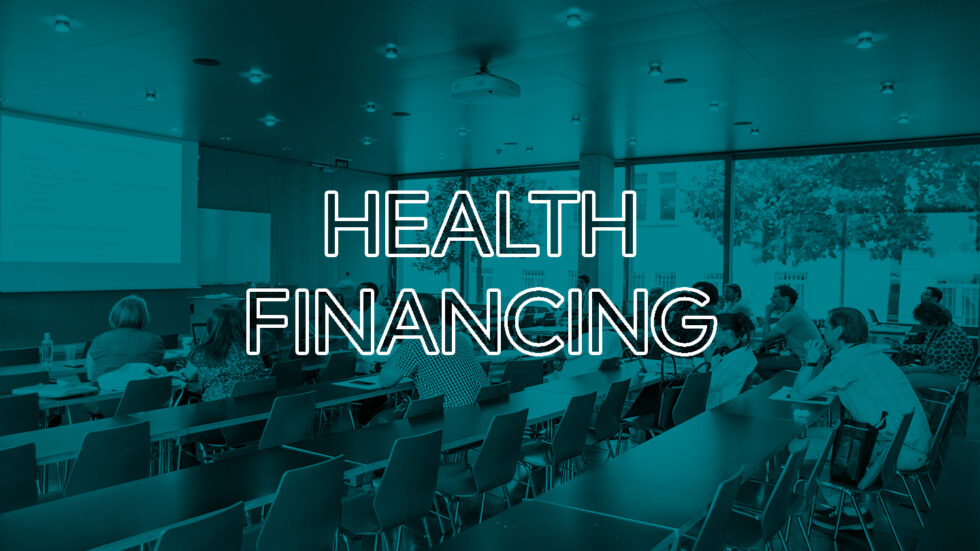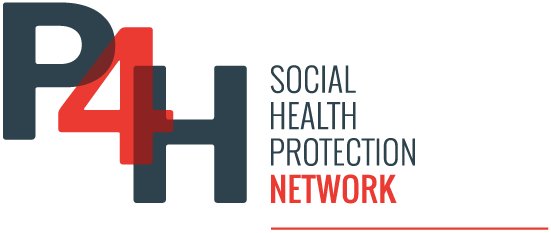The global polycrisis and health inequalities
Courtney McNamara and Clare Bambra, in their article published in the International Journal of Social Determinants of Health and Health Services, examine the impact of the global polycrisis on health inequalities. The authors employ a political economy of health...

Virtual Diploma in Health Economic Evaluation – Universidad de Antioquia
The Virtual Diploma in Health Economic Evaluation, which began on February 17, is still in progress, training professionals in health economic analysis. The Virtual Diploma in Health Economic Evaluation, organized by the Universidad de Antioquia, began on February 17...

Nigeria’s First Lady urges sustainable health financing at AU Summit
Nigeria’s First Lady, Oluremi Tinubu, has urged African nations to strengthen domestic health financing, reduce reliance on foreign aid, and uphold budget commitments to ensure sustainable healthcare.At the 38th African Union Summit in Addis Ababa, Nigeria’s First...
Post-growth: the science of wellbeing within planetary boundaries
The pursuit of economic growth has long been a cornerstone of policy-making, yet mounting evidence suggests that in high-income countries, continuous GDP expansion may not be environmentally sustainable, socially beneficial, or even economically feasible. In their...
A new compact for health financing: Insights from policymakers across Africa
In January 2025, the Center for Global Development (CGD) and the Addis Center for Ethics and Priority Setting in Health (ACEPS) hosted a roundtable with policymakers from 14 African countries to discuss a New Compact for health financing. This note on the roundtable...

African leaders pledge to close malaria funding gap amid foreign aid uncertainty
African leaders commit to increasing domestic funding for malaria elimination amid foreign aid cuts, aiming to close funding gaps, boost local pharma production, and meet WHO’s 2030 malaria targets. Amid growing concerns over foreign aid reductions, African leaders...
Portugal: health system summary 2024
Portugal’s health system is predominantly tax-financed and provides universal coverage through the National Health Service (NHS), which operates alongside health subsystems serving specific groups. Despite comprehensive care delivered by both public and private...

Pharmaceutical expenditure in France
In 2023, French health insurance reimbursed €25.5 billion worth of drugs, or 12% of total expenditure. The increase was driven by innovative treatments and hospital prescriptions. Generics and biosimilars are key to controlling costs. In a press kit published on...
Case for a health equity framework in HTA
Improving health equity is vital for individual and societal well-being, as evidenced by significant disparities in life expectancy across England. The National Institute for Health and Care Excellence (NICE) emphasizes the importance of reducing health inequalities,...
Reducing fragmentation of primary healthcare financing for more equitable, people-centred primary healthcare
Published in BMJ Global Health, Reducing Fragmentation of Primary Healthcare Financing for More Equitable, People-Centred Primary Healthcare by Agnes Gatome-Munyua, Susan Sparkes, Gemini Mtei, Martin Sabignoso, Prastuti Soewondo, Pierre Yameogo, Kara Hanson, and...

Lugano summer school: Measuring health spending to improve sector performance
The Lugano Summer School to be held between 21-23 August will explore methods for tracking health spending, measuring efficiency, and using provider payment systems to improve health sector performance and inform policy reforms. The Lugano Summer School is offering an...
Peru’s Ministry of Health Strategic Plan 2025-2030 approved
The Strategic Plan 2025-2030 of the Peruvian Ministry of Health was approved in February 2025. It has, among others, institutional strategic objective 4, which is to strengthen the steering, regulatory and supervisory role of the Ministry of Health. Among others, the...

Sustainable financing for health
Sustainable health financing in Nepal is crucial for achieving Universal Health Coverage (UHC), yet the country struggles to meet the WHO's recommendation of allocating at least 5 percent of its GDP to healthcare, primarily relying on high out-of-pocket payments....
The financial toxicity of cancer: unveiling global burden and risk factors – a systematic review and meta-analysis
Published in BMJ Global Health, this systematic review and meta-analysis examines the global prevalence of financial toxicity among patients with cancer, highlighting its significant burden on individuals and families. While previous studies have explored the...
Prices, availability, and affordability of adult medicines in 54 low-income and middle-income countries
Published in The Lancet Global Health, the study by Lachlan Oldfield, Jonathan Penm, Ardalan Mirzaei, and Rebekah Moles examines the prices, availability, and affordability of essential medicines in 54 low- and middle-income countries. Using a secondary analysis based...
